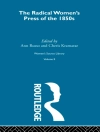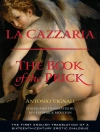Maurice Maeterlinck’s ‘Pélléas and Mélisande; Alladine and Palomides; Home’ is a collection of three plays that explore themes of fate, love, and human nature. Written in a poetic and symbolic style, Maeterlinck’s work is often associated with the Symbolist movement, known for its emphasis on emotions, dreams, and the subconscious. ‘Pélléas and Mélisande’ tells the tragic tale of forbidden love, while ‘Alladine and Palomides’ delves into the complexities of desire and power. ‘Home’ captures the essence of domestic life and the challenges of relationships. Maeterlinck’s lyrical language and profound insights make this collection a captivating read for fans of Symbolist literature. Maurice Maeterlinck, a Belgian playwright and Nobel laureate, was influenced by the Symbolist poets and playwrights of his time. His fascination with the mysteries of human existence is evident in his experimental use of language and themes. Maeterlinck’s deep understanding of the human psyche shines through in his plays, making him a significant figure in literature. Recommended for readers interested in Symbolist literature and thought-provoking plays, ‘Pélléas and Mélisande; Alladine and Palomides; Home’ offers a glimpse into the enigmatic world of Maurice Maeterlinck’s imagination.
Об авторе
Maurice Maeterlinck, born in Ghent, Belgium on August 29, 1862, is a seminal figure in the Symbolist movement, which sought to express the ineffable and unseen mysteries of the universe through a unique and evocative literary style. Maeterlinck studied law before turning to literature, and his works often explore themes of fate, destiny, and the human condition, frequently characterized by a melancholic and metaphysical tone. His masterpiece, ‘Pelléas and Mélisande’ (1892), is a poignant drama that delves into the subtleties of human emotion and the complexities of love, reflecting his interest in the unseen forces at play in people’s lives. The play’s impact on the literary world was profound, influencing composers like Claude Debussy, who adapted it into an opera. ‘Alladine and Palomides’ (1894), and ‘Home’ (1908) further establish Maeterlinck’s reputation as a playwright and thinker, encompassing his signature blending of the mystical and the everyday. For his significant contributions to literature, Maeterlinck was awarded the Nobel Prize in Literature in 1911. His works continue to be celebrated for their lyrical beauty and philosophical depth.












